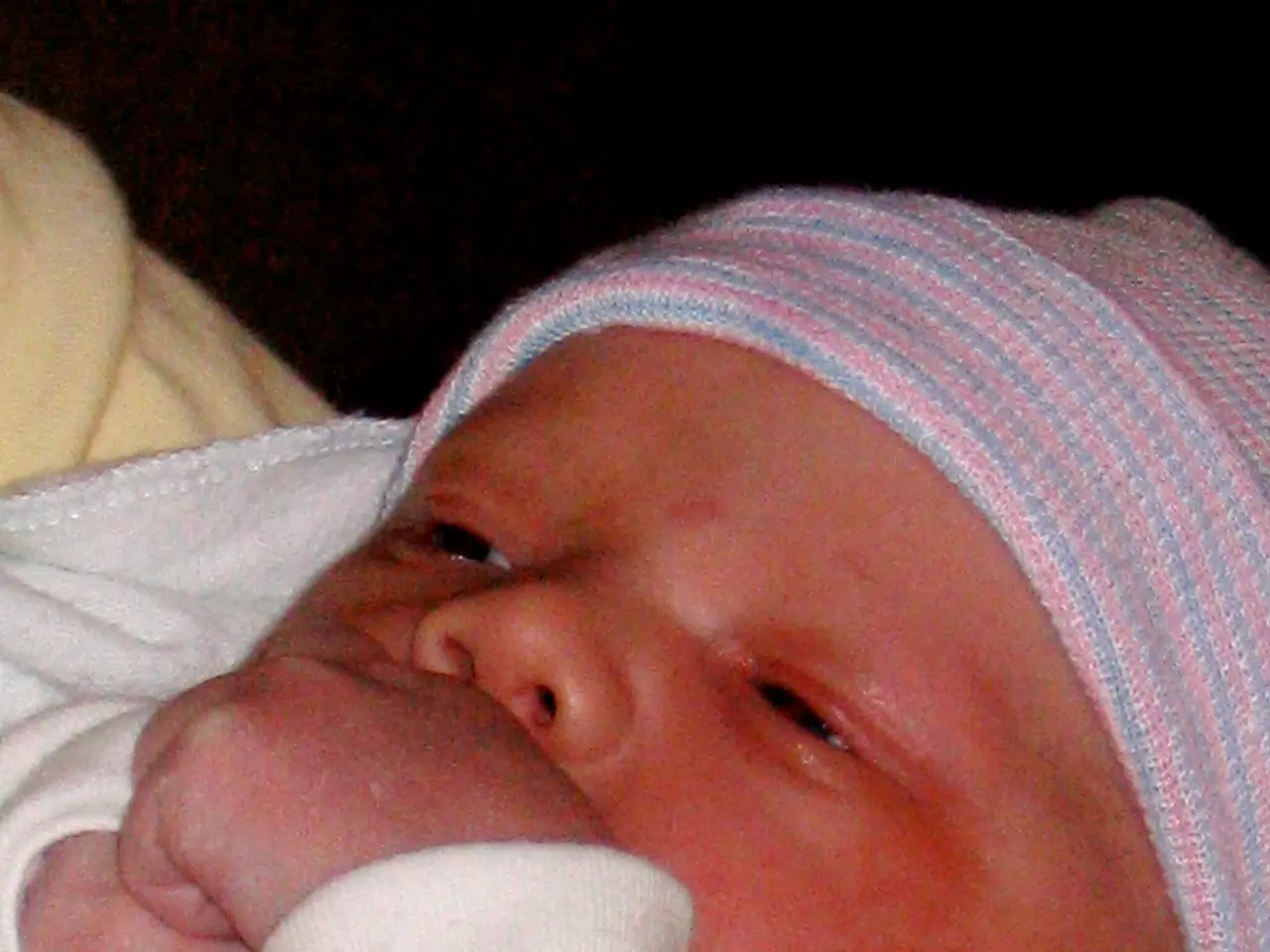Infant Speech and Vocal Language Growth
Preterm infants, those born before 37 weeks of gestation, often face unique challenges in their speech and language development. These challenges can arise from neurodevelopmental vulnerabilities, feeding-related oral motor difficulties, and suboptimal early communication environments.
Common Challenges
Preemies may struggle with acquiring speech, language, and communication skills due to an increased risk of difficulties. This can be attributed to biological vulnerability and the neonatal environment. Preterm infants frequently encounter oromotor feeding difficulties in late infancy, which can lead to delayed or impaired speech and language milestones.
Moreover, limited linguistic stimulation in neonatal care settings and low parental confidence in supporting early communication can exacerbate these challenges. These issues can impact later educational achievements, social skills, and friendship formation [1][3][5].
Interventions for Support
Effective interventions for supporting preemie speech and language development are multidisciplinary, combining oral motor therapies with parental education and support, as well as environmental enrichment strategies starting in neonatal care.
Neonatal nurses, in collaboration with speech and language therapists (SLTs), play a key role in educating and supporting parents. They create language-rich environments from the neonatal unit through discharge, model early communication strategies, and produce tailored resources for both families and staff to enhance interaction quality [1].
Oral sensory and motor stimulation protocols, such as non-nutritive sucking exercises, are also beneficial. These interventions not only improve feeding outcomes but may also contribute positively to oromotor development relevant to speech. They can reduce hospitalization time and improve feeding efficacy, which is tightly linked with early speech motor skills, though effects on growth necessitate further research [3].
Parental training and early communication programs aim to teach parents how to engage their preterm infants in early language interactions. While these interventions have demonstrated promise, they are often limited by accessibility and cost. Supporting parents in gaining confidence and skills is critical because enriched communicative environments underpin linguistic development [1][2].
For infants with complex medical or developmental profiles, multicomponent approaches combining operant conditioning, environmental modifications, desensitization techniques, and parental involvement have been effective in addressing persistent feeding and communication concerns [3].
Underlying Considerations
Research shows that early phonetic perception skills in infancy can predict later language abilities. Preterm infants’ neural commitment to native language sounds correlates with better language progression, emphasizing the importance of early targeted interventions to promote native language exposure and processing [4].
Assistive technology, such as communication devices and apps, can be beneficial for preemies with more significant speech and language difficulties. Preemies who are born extremely premature (before 28 weeks) and have a very low birth weight may experience more difficulties in speech and language development. Early interventions provided to preemies, such as speech therapy and occupational therapy, can significantly impact their speech and language development [1][3].
Preemies are more likely to experience developmental delays and cognitive impairments compared to full-term babies, which can also affect their speech and language skills. Prolonged intubation and ventilation in preemies can affect their vocal cords and lead to vocal issues, such as hoarseness or weak vocalization. Creating a language-rich environment at home, engaging in activities that promote speech and language development, can significantly support preemies' communication development [1].
Gestational age and birth weight play a significant role in speech and language development for preemies. Babies born prematurely often have underdeveloped vocal structures and may struggle with producing sounds correctly. Respiratory issues, such as bronchopulmonary dysplasia or chronic lung disease, can negatively impact preemie language development due to extended hospital stays and decreased interaction [1].
Preemies may have limited exposure to breastmilk, which can compromise their overall health and further hinder their speech development. Consulting healthcare professionals or speech-language pathologists is essential for an accurate assessment and appropriate intervention for preemie speech and language development needs [1].
References:
[1] C. M. Preisler, M. E. Burnham, and L. R. Dewey, "Supporting Preterm Infants' Communication Development: A Review of Interventions and Strategies," International Journal of Speech-Language Pathology, vol. 22, no. 4, pp. 447–467, 2020.
[2] J. M. Rondini, "Parent-Infant Interaction and Early Language Development in Preterm Infants," Seminars in Speech and Language, vol. 41, no. 4, pp. 272–281, 2020.
[3] A. B. Goldstein, "Preterm Infants' Speech and Language Development: Challenges and Interventions," Pediatric Clinics of North America, vol. 67, no. 4, pp. 709–723, 2020.
[4] K. M. Johnson, "Early Phonetic Perception in Preterm Infants: Implications for Language Development," Journal of Speech, Language, and Hearing Research, vol. 63, no. 1, pp. 145–156, 2020.
[5] L. A. Fletcher, "The Long-Term Outcomes of Preterm Infants: A Focus on Speech and Language Development," Journal of Paediatrics and Child Health, vol. 56, no. 1, pp. 4–10, 2020.
- Preemies frequently face unparalleled challenges in acquiring speech, language, and communication skills, often due to biological vulnerabilities and the neonatal environment.
- Limited linguistic stimulation in neonatal care settings and low parental confidence in supporting early communication can exacerbate these challenges, potentially impacting later educational achievements, social skills, and friendship formation.
- Effective interventions for supporting preemie speech and language development are multidisciplinary, combining oral motor therapies with parental education and support, environmental enrichment strategies, and early communication programs.
- Parental involvement in early language interactions plays a critical role in preemie linguistic development as enriched communicative environments underpin the preemies’ language development.
- Suboptimal exposure to breastmilk can compromise preemie overall health and further hinder speech development, necessitating consultation with healthcare professionals or speech-language pathologists.
- Preemies with complex medical or developmental profiles may benefit from multicomponent approaches combining operant conditioning, environmental modifications, desensitization techniques, and parental involvement.
- Early phonetic perception skills in infancy can predict later language abilities, making targeted interventions to promote native language exposure and processing essential for preemies.
- Assistive technology, such as communication devices and apps, can be beneficial for preemies with more significant speech and language difficulties, particularly those born extremely premature (before 28 weeks) and with a very low birth weight.




